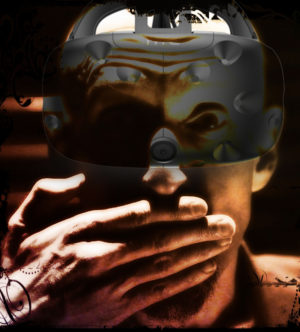Areas covered will include VR production pipelines, VR UX, prototyping, user-testing, and more.
I insist that I have far less experience guiding VR production teams than many smarter and more experienced VRpreneurs (Kim Voll and Andy Moore I speaketh of you); particularly those who have invested in VR research and development for the past 3000 virtual years.
I have more experience guiding learners through virtual non-VR production pipelines and that experience has influenced my desire to operationalize and investigate all those necessary elements that individuals co-constructing VR experiences need to know.
There are a bunch of moving parts for VR dev (literally) to consider. Even though it has re-invaded our schools (in some cases it has never stopped) and the complexities and variables are numerous whatever headset/system/haptics is being developed and researched, it will not stop the experimentation, user-testing and development of VR experiences. While it might have been an on and off phase before, it is a multi-billion dollar persistent one now with the Chinese government diving in to support it’s massive development. VR, like any other interactive experience offers affordances and constraints to users and those users are also the design team. Yes, the brain is involved in VR, as it is in other experiences. Perhaps the effects of VR are experienced faster than others. If you are like me, you end up with PTVRD hours after riding that nasty ferris wheel on some VR barf egg at China Joy Shanghai.
Like any situated and contextual design of learning, this modular VR one proposes optional pathways for multiple levels of experience, and is not meant to be templated, particularly because I am not including what a 3-hour or 3-month workshop would actually look like. That is reserved for those organizations who are serious about implementing them. The overview of these learning modules are the first iteration of a growing and refining list.
Designing modules for VR instruction will be influenced by several complementary factors:
- Ongoing exposure to VR products and research;
- Mentoring and iterating on the learning pipeline throughout VR development projects at the Centre for Digital Media in Vancouver;
- VR Case study research at the Master of Digital Media Program in Vancouver;
- Knowledge sharing of VR dev and teaching with Bill Zhao, Larry Bafia, Dr. Kimberly Voll and Jeremy Gibson (so far);
- Ongoing discussions with members of the VR community.



Leave a Reply